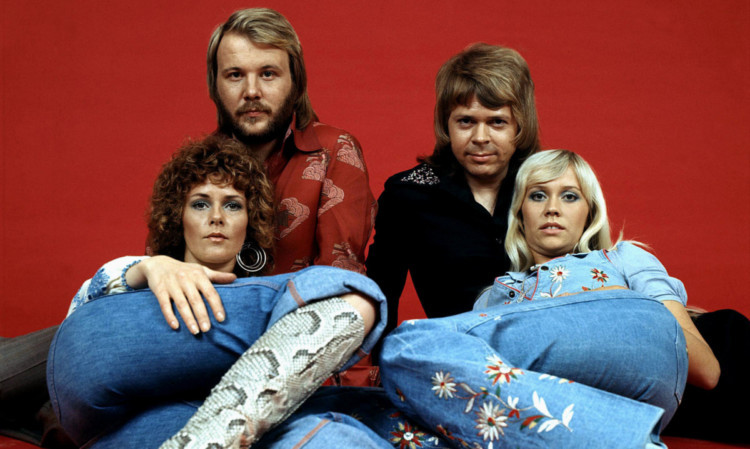
Waterloo became a hit after success on Eurovision.
Who’d have thought it’s been 40 years since ABBA stormed to Eurovision victory with the damnably-catchy Waterloo?
I defy anyone to read this and not have the Swedish pop legends’ ear worm burrowing through their heads for the next few hours.
No wonder at the 50th anniversary celebration of the Song Contest in 2005, it was chosen as the best song in the competition’s history.
Mind you, the competition being far more fierce in those days, even Waterloo only won by the narrow margin of six points.
Waterloo was the song that set ABBA on the road to worldwide fame and fortune as not only did it take the Eurovision title, it went to No 1 in several countries.
It was the first of their nine UK No 1s but never reached top slot in their homeland, which had a somewhat-bonkers combined album and singles chart at the time.
Still, with six million copies sold, it’s one of the bestselling singles of all time.
Not bad for a ditty inspired by the Duke of Wellington giving Napoleon a damned-good thrashing at a Belgian farmhouse a century and a half previously. Well, sort of.
It’s about a girl about to surrender to romance as Old Boney had to surrender to the Iron Duke.
The thing is, Waterloo for many THE quintessential Eurovision song was actually written specifically for the 1974 Contest after ABBA had finished third with Ring Ring the previous year in Sweden’s pre-selection contest.
It was also the first single to be credited as ABBA. Previously the band had been known as Bjorn & Benny, Agnetha & Anni-Frid but this was just too much of a mouthful.
Record label boss Stig Anderson started calling them ABBA taken from their initials but only decided on it permanently after a competition in a Gothenburg newspaper suggested the less-than-brilliant Alibaba, FABB or Baba.
It was a bit of a risk, though, as Abba was also the name of a well-known fish-canning company in Sweden.
What was also risky was Benny and Bjorn choosing Waterloo over another candidate, Hasta Maana, even though they felt the latter was more in style with previous “dramatic ballad” Eurovision winners.
Waterloo also featured the girls sharing lead vocals rather than Agnetha alone as they believed this would give the wrong impression of them to the world. Indeed, Waterloo gave the Eurovision audience something new.
The Swedes went for a more up-tempo, disco-esque number, and complemented it with flashy stage costumes including daring- for-the-time silver platform boots.
That was maybe another nod to British glam rock band Wizzard, whose song See My Baby Jive was cited by ABBA as a major influence on Waterloo.
Fittingly, Wizzard front man Roy Wood provided saxophone and backing vocals for a 1986 cover version of the track by Doctor And The Medics.
ABBA also introduced simple choreography, with the girls moving in synch as opposed to previous contestants, who basically stood still to sing.
And this “get-up-and-dance” element has been seized upon in the ABBA-based musical show Mamma Mia!.
The song doesn’t have a context or meaning in the story, it’s just there to get the audience out of their seats to dance, sing and clap along. But the biggest break from tradition was this Waterloo was sung in English.
Prior to the Stockholm band’s triumph, all Eurovision singers had been required to sing in their country’s native tongue.
This restriction was lifted in the 1970s then reinstated before finally being completely removed.
And if you compare the song to later ABBA releases, you hear their Swedish accents are far more pronounced as their understanding of English was limited at that point.
By the way, Waterloo was a late name change. The song was originally titled Honey Pie which, while you can slot it into the tune in place of “Waterloo” go on, try it it just sounds terrible.

Enjoy the convenience of having The Sunday Post delivered as a digital ePaper straight to your smartphone, tablet or computer.
Subscribe for only £5.49 a month and enjoy all the benefits of the printed paper as a digital replica.
Subscribe